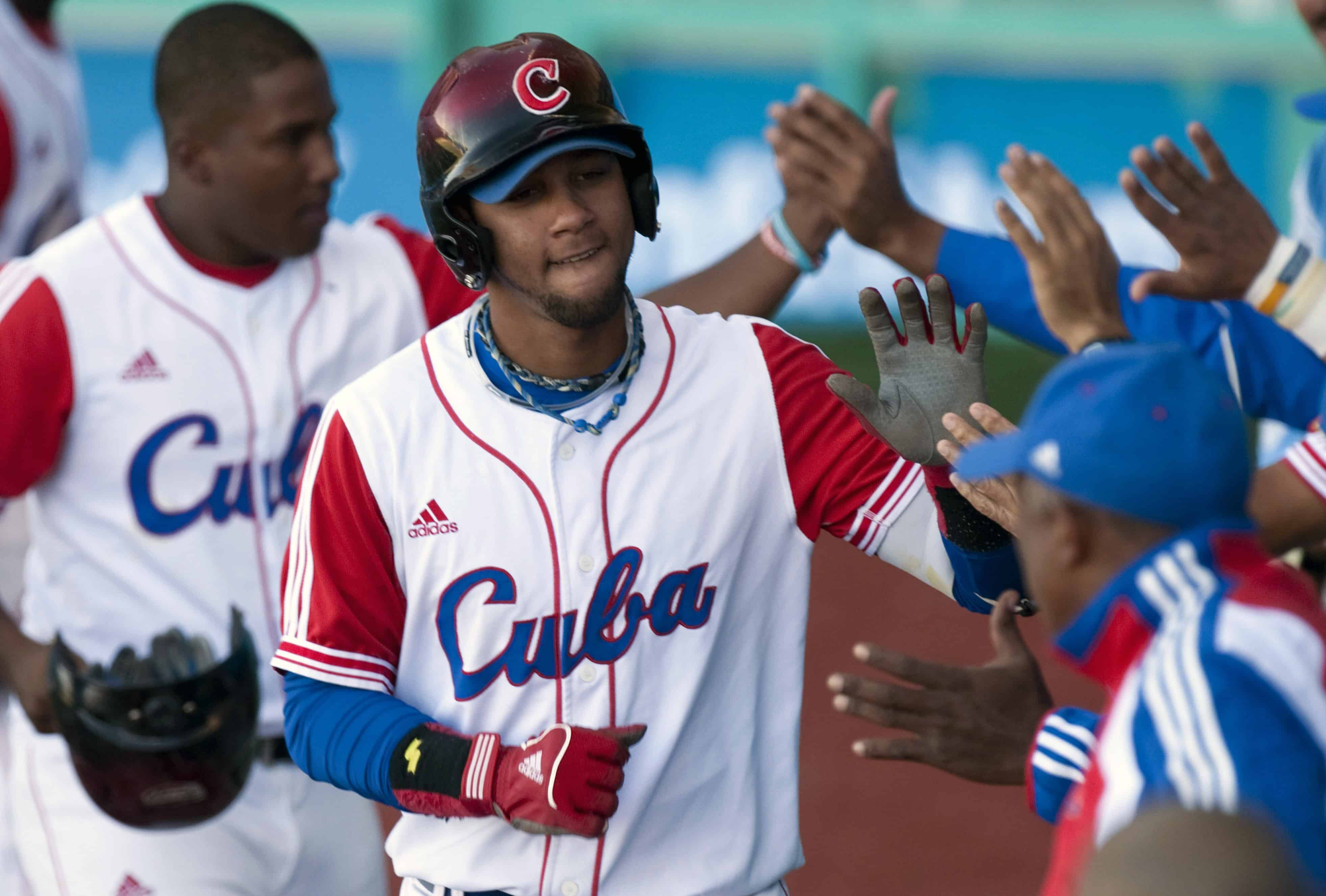HAVANA– There may be no other baseball player in Cuba who better embodies the principles of socialist sportsmanship than star infielder Yulieski Gourriel.
Gourriel, who many scouts consider the top player on the island, has stayed faithful to his country’s brand of baseball while busloads of his less-talented compatriots defect to the United States. Gourriel plays in the Cuban league for about $50 a month, even though he’s a speedboat ride away from a $10 million-a-year Big League contract.
At age 30, Gourriel is already considered past his prime. So it was only fitting that communist officials would reward his loyalty by making him a pioneer of a new baseball experiment intended to stem defections and encourage players to remain at home.
For a roughly 10 percent cut of their contracts, the government has started allowing some Cuban players to sign professional deals abroad, on the condition that they agree to play in the island’s winter league and represent Cuba at international competitions.
U.S. trade sanctions don’t allow this type of arrangement, so Gourriel went to Japan last year and signed with the Yokohama DeNA BayStars for nearly $1 million. He played well, hitting .305 with 11 home runs in 62 games. This season he was due to return for $3 million.
Only Gourriel’s contract was abruptly canceled last week. The team said he didn’t show up in Japan, telling them he would remain in Cuba to get treatment for a thigh injury, with no timetable for recovery.
“He doesn’t understand what a contract is,” Yokohama’s general manager, Shigeru Takada, said at a press conference last week, explaining that the team had even sent an envoy all the way to Cuba to try to bring him back.
Yokohama also signed Gourriel’s 21-year-old brother, Lourdes Jr., to a two-year deal, but he didn’t travel to Japan either, sidelined by a wrist injury.
The injuries to both brothers point to a big problem with the government’s new baseball experiment: it leaves no time for rest and recovery.
The elder Gourriel has essentially been playing non-stop for the past two years. He starred for Cuba in the World Baseball Classic in spring 2014, then played for Yokohama last summer.
After that Gourriel returned home to play a season of winter ball for Havana’s Industriales, and for the national team at the Caribbean Series in Puerto Rico this past February.
It’s no wonder he’s worn out. His canceled contract does not bode well for future deals with Japanese teams, especially for the trusted older players that Cuba would prefer for its experiment, seeing them as less likely to defect. Asking them to play baseball year-round may simply be too much.
In that sense, Gourriel’s injury is also a strike against those in Cuba who have argued that the country can have it both ways, keeping beloved players in the Cuban league by giving them a chance to cash in a little bit on their skills abroad.
It’s partly the reason Fidel Castro always insisted Major League teams are “stealing” players from other countries when they sign them to lucrative contracts. Once they’re earning huge salaries, they can’t really afford to go back.
See also: Costa Rica’s major league concern
And: Normalized relations between Cuba and US could have ‘drastic’ impact on MLB
Miroff is a Latin America correspondent for The Washington Post, roaming from the U.S.-Mexico borderlands to South America’s southern cone. He has been a staff writer since 2006.
© 2015, The Washington Post






